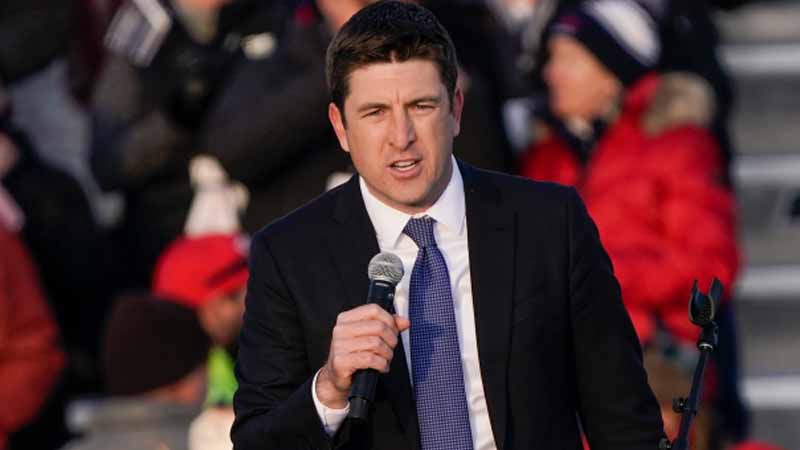Rep. Brian Steil: ‘Passing the SAVE Act is Our Opportunity to Win the Election’

(Morry Gash/AP)
Rep. Brian Steil (R-WI) argued that passing the controversial SAVE Act, which would make voting more difficult by requiring documents like a passport or birth certificate to cast a ballot, is key to Republicans’ chances of winning the upcoming election.
In an interview with Fox News’ Maria Bartiromo, Steil emphasized the importance of combining the SAVE Act with a continuing resolution (CR) to fund the government. He encouraged House Speaker Mike Johnson (R-LA) to push the legislation forward in tandem with the CR, framing it as a critical strategy for electoral success.
“I don’t think anybody should be afraid of a shutdown,” Steil told Bartiromo. “What we need to do is attach the SAVE Act to the CRs, the last train leaving the station, put it in the lap of the Senate, and force them not only to keep the government open until we can win in this election.”
Steil further underscored that passing the bill would ensure election security, positioning it as an essential step toward victory. “Passing the CR with the SAVE Act, as the Speaker is trying to do, is our opportunity to win the election and secure the election,” Steil added. “I think we have an opportunity to pass the legislation that the Speaker has put forward and jam the United States Senate to both secure the election and keep the government open such that we win the election.”
The SAVE Act has drawn criticism for its potential to restrict voter access, particularly among marginalized communities who may not have immediate access to the required documents. Critics argue that the bill could disenfranchise voters and create unnecessary barriers to participation in the democratic process. However, Steil and other proponents of the legislation believe that stricter voting requirements are necessary to ensure election integrity.
With the government funding deadline approaching, the push to attach the SAVE Act to a continuing resolution presents a high-stakes legislative maneuver. The outcome of this effort could significantly impact both the 2024 election and the future of U.S. voting laws.


